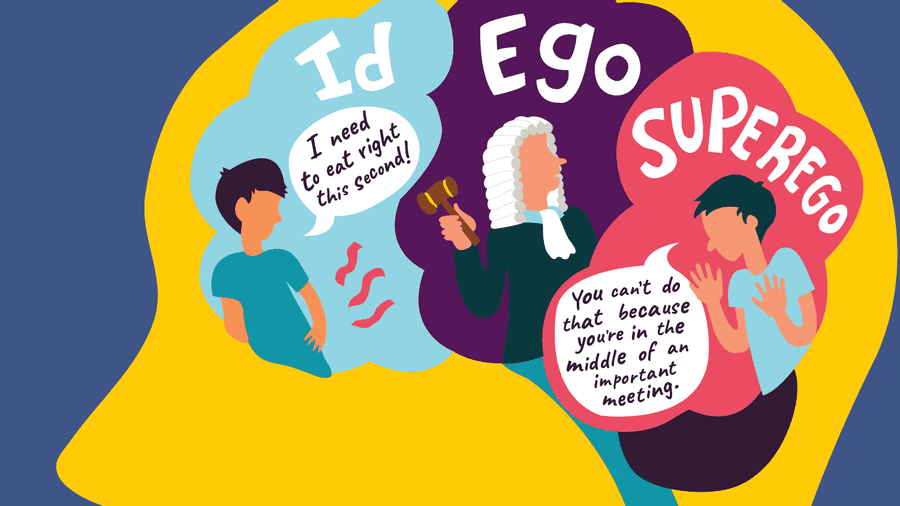The Mediating ego
The ego is the mediator between the id, the superego, and reality. The ego works out how to meet the id's needs while upholding social reality and the moral standards of the superego.
When there is a balance between the id, ego, and superego, Freud claimed that it resulted in a healthy personality. If one of the parts of personality dominated over the other, difficulties would result. For example, if the id dominates, a person may act on their impulses and disregard the rules of society.
137
491 reads
CURATED FROM
IDEAS CURATED BY
The idea is part of this collection:
Learn more about personaldevelopment with this collection
The power of gratitude and positive thinking
Ways to improve your mood
Simple daily habits for a happier life
Related collections
Similar ideas to The Mediating ego
The Ego And The Reality Principle
According to the original psychoanalyst, Sigmund Freud, our ego is part of our personality that is between the id (our primal, animalistic instincts), our superego (the mature personality formed by the kind of upbringing and social influences in one’s life) and reality.
T...
The Ego In Psychology
Psychology defines ego as a neutral concept which is one of many aspects of ourselves. The ego is then simply one’s individuality, the thoughts, behaviours and experiences that make a person unique. It is the part that perceives reality, making sense of all the information around...
2. Psychodynamic Theories
Psychodynamic theories, popularized by Sigmund Freud, emphasize the role of unconscious processes and early childhood experiences in shaping personality. According to Freud, personality is composed of three parts: the id, ego, and superego, which interact to produce behavior.
Read & Learn
20x Faster
without
deepstash
with
deepstash
with
deepstash
Personalized microlearning
—
100+ Learning Journeys
—
Access to 200,000+ ideas
—
Access to the mobile app
—
Unlimited idea saving
—
—
Unlimited history
—
—
Unlimited listening to ideas
—
—
Downloading & offline access
—
—
Supercharge your mind with one idea per day
Enter your email and spend 1 minute every day to learn something new.
I agree to receive email updates
